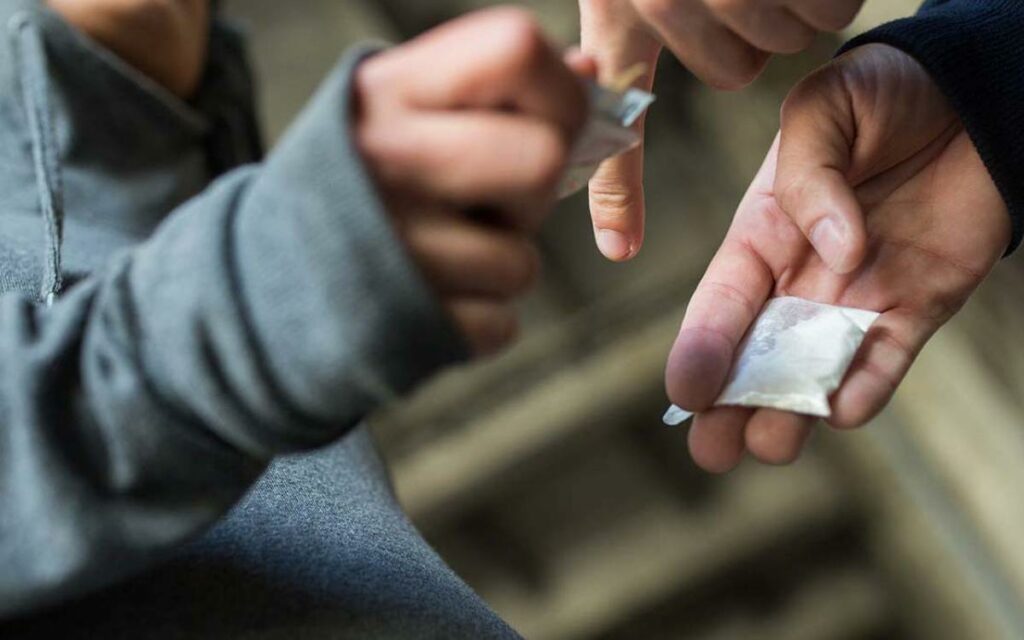
There doesn’t appear to be any one easy solution to the escalating issue. But one thing’s for certain: what we are doing now is clearly not working.
Drugs of one kind or another have been a serious problem in Canada for decades, but in recent years things seems to be getting considerably worse. Part of this is a result of new and more deadly drugs, such as fentanyl, coming into the market at low cost, increasing accessibility. Another part of the problem, however, is more lenient policy and legal treatment of drugs which, although intended to help addicts eventually get off drugs, seems only to be making things worse.
Vancouver, BC is sadly well-known for its infamous Downtown East Side (DTES), one of the city’s oldest neighbourhoods. The DTES has been plagued with homelessness, heavy drug use, poverty, crime and other related problems for decades, and things are not getting better. At the request of the provincial government, Health Canada granted an exemption from federal drug laws as of the beginning of 2023. This meant that adults are not subject to criminal charges for the possession of small amounts of drugs such as cocaine, methamphetamine, ecstasy and opioids such as heroin, fentanyl and morphine.
To date, this policy appears to have been an abject failure and areas like the DTES are worse than ever. It is estimated that about seven people per day die of overdoses in BC, mostly because of street drugs contaminated by something like fentanyl.
The issue of so-called “safe supply” is currently being tested in some provinces, and was first introduced in BC. This policy involves providing addicts with a non-contaminated supply of drugs to reduce the likelihood of overdose with street drugs that are contaminated. One of the unfortunate outcomes of providing a safe supply is that addicts have then turned around and sold their “safe” drugs on the street to obtain more potent and more dangerous drugs. The jury is still out on whether safe supply has a net positive or negative impact.
Toronto has also been considering adopting a version of the BC model. The city recently updated its request for decriminalization of certain drugs to the federal government. Whereas the BC policy only applies to adults, the Toronto request includes young people and wants the exemption to be applied to all drugs, not just a few as BC’s policy does. Now that the Toronto municipal election is over and Olivia Chow is mayor, it is likely that this policy will be expedited as Chow has appeared sympathetic to the change.
Ontario Premier Doug Ford has expressed his emphatic opposition to decriminalization of hard drugs. Chow is also apparently in favour of more safe injection sites for addicts. Recently, a horrible murder of an innocent bystander by a stray bullet took place close to a safe injection site where drug dealers were having a dispute. The evidence shows that safe injections sites may somewhat reduce overdose deaths for those who use the sites, but also become centres for drug dealers and other problems in a neighbourhood.
Other provinces are trying different approaches. For instance, Alberta is focusing more on treatment than legalizing hard drugs or safe supply. So far, the data suggest Alberta has had more success with reducing overdose deaths, although there is not enough evidence as yet to make a definitive conclusion. The current international success story is Portugal, which combined decriminalization of small amounts of drugs with an aggressive treatment regime.
Another negative result of lenient drug laws involves children and cannabis poisoning. Since marijuana was legalized in 2018, the rate of poisoning of children has increased by a staggering 7.5 times in BC, Alberta and Ontario. Teenagers are also being hospitalized for accidental cannabis poisoning at a far greater rate than prior to legalization. When the legalization was being considered, doctors had consistently warned politicians that cannabis was especially dangerous for youth, and recommended the legal age be raised from 18 to 21. The Trudeau government ignored the doctors’ advice.
One of the key issues facing many municipal politicians currently is the proliferation of tent cities, which typically combine drug use with homelessness, mental illness and crime. A whole industry of defenders of the occupants of these encampments has evolved on the left side of the political spectrum, such that often many of the occupants are not homeless but activists. In Toronto, several public parks such as Allan Gardens have become off-limits to average citizens as the tent cities have overtaken what was once a beautiful public park. Instead of discouraging this activity, city staff have installed port-a-potties and extra garbage bins to enable it.
It wasn’t that long ago that Canadians would have believed such problems existed in the US or Europe, but not in pristine Canada. Those days are clearly over. These problems are complex and defy easy solutions, but the current tendency for many governments to enable them instead of looking for solutions does not seem to be working. Despite all of these more tolerant policies toward drug use aimed at the prevention of overdoses, data show that total overdose deaths continue to climb. Overall housing shortages mean the availability of affordable housing for the homeless is even worse than usual.
What we are doing now is clearly not working, and all Canadians should be engaged in pressuring politicians to fix the problems, if only out of basic human decency for our disadvantaged fellow citizens.

She has published numerous articles in journals, magazines & other media on issues such as free trade, finance, entrepreneurship & women business owners. Ms. Swift is a past President of the Empire Club of Canada, a former Director of the CD Howe Institute, the Canadian Youth Business Foundation, SOS Children’s Villages, past President of the International Small Business Congress and current Director of the Fraser Institute. She was cited in 2003 & 2012 as one of the most powerful women in Canada by the Women’s Executive Network & is a recipient of the Queen’s Silver & Gold Jubilee medals.


















